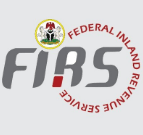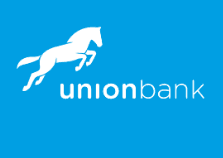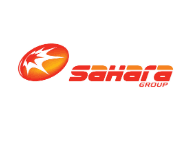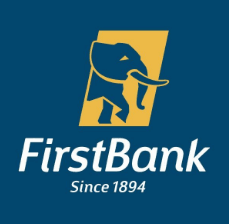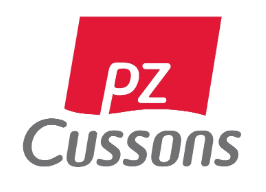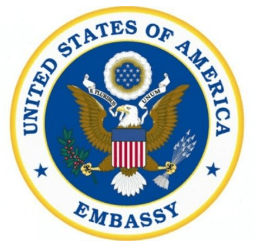Oando Plc is one of Africa’s largest integrated energy solutions provider with a proud heritage. It has a primary listing on the Nigeria Stock Exchange and a secondary listing on the Johannesburg Stock Exchange. With shared values of Teamwork, Respect, Integrity, Passion and Professionalism (TRIPP).
We are recruiting to fill the following positions below:
Title: Assistant Manager, Cybersecurity
Location: Port Harcourt, Rivers
Job Type: Full-time
Reports to: Manager, IT Security
Overall Purpose of Job
- The Asst. Mgr. Cybersecurity is responsible for designing, developing, and overseeing the implementation of the organization’s overall security architecture, with a focus on the unique challenges of the Oil and Gas industry.
- This role requires a deep understanding of business goals, security requirements, and industry-specific technologies to create a robust security framework that protects the company’s digital and physical assets, ensures compliance with regulations, and aligns with business objectives.
- The Asst. Mgr. Security Architect will work closely with various IT teams, business units, and leadership to integrate security measures across all systems, networks, and field locations.
Responsible For:
- Enterprise Security Architecture, Risk Management, Security Strategy, Compliance, Identity and Access Management, Threat Modelling, Security Controls Design, Security Policies and Standards, Technology Evaluation, Incident Response Planning, OT/IT Convergence Security, Cloud Security, Vendor Management.
Responsibilities
Architecture and Strategy:
- Develop and maintain a comprehensive enterprise security architecture that aligns with business objectives and addresses current and emerging threats in the Oil and Gas industry
- Create and update security reference architectures, patterns, and blueprints to guide the implementation of security controls across the organization, including cloud environments, ERP systems, SCADA networks, and remote field locations
- Lead the design and implementation of security controls across all IT and OT infrastructure layers
- Develop and maintain a security technology roadmap that supports the organization’s long-term security goals and addresses the convergence of IT and OT systems
- Ensure compliance with relevant industry regulations and standards (e.g., ISO 27001, Cybercrime Act, NDPR, NIST, GDPR, etc.).
Risk Management and Incident Response:
- Conduct regular risk assessments and threat modelling to identify vulnerabilities across IT and OT environments, and recommend mitigation strategies
- Lead security incident response planning and oversee major security incidents
- Ensure the effectiveness of disaster recovery and business continuity plans
- Oversee vulnerability management and penetration testing programs.
Security Operations and Implementation:
- Guide the implementation of security tools and technologies
- Oversee the security operations center (SOC) activities
- Ensure proper configuration and maintenance of security systems
- Monitor and analyze security metrics and key performance indicators
- Design and oversee the implementation of security controls for networks, systems, applications, and data, with a focus on protecting critical infrastructure and sensitive operational data.
Compliance and Governance:
- Develop, maintain, and enforce comprehensive security policies, standards, and guidelines that address both IT and OT environments
- Oversee internal and external security audits
- Manage security-related aspects of vendor relationships
- Collaborate with legal and compliance teams to address regulatory requirements specific to the energy sector
Leadership and Collaboration:
- Assist the CISO in coordinating the work priorities of Security Administrators across all aspects of security operations
- Collaborate with IT, OT, and business leaders to ensure security is integrated into all aspects of operations
- Provide regular reports and presentations to executive leadership
- Develop and maintain relationships with key security vendors and partners
- Act as a subject matter expert for all security-related matters.
Education and Awareness:
- Drive security awareness and training programs across the organization
- Stay abreast of emerging security threats, technologies, and best practices specific to the energy sector
- Educate executive leadership on cybersecurity risks and mitigation strategies
- Promote a culture of security awareness within the organization.
Continuous Improvement:
- Regularly assess the effectiveness of security controls across IT and OT environments and recommend improvements
- Implement metrics to measure the effectiveness of security programs
- Lead initiatives to enhance security maturity across the organization
- Integrate emerging technologies and methodologies into the security framework.
Person Specification
- Master’s Degree in Computer Science, Information Security, or related field
- 10+ years of experience in IT security, with at least 5 years in a senior security role
- Deep understanding of security architectures, frameworks, and methodologies
- Strong knowledge of network security, application security, and cloud security
- Experience with ICS/SCADA security in industrial environments
- Strong leadership and project management skills
- Experience with risk management and compliance frameworks
- Excellent communication skills, able to articulate complex security concepts to both technical and non-technical audiences
- Strategic thinker with the ability to align security initiatives with business objectives.
Required Competencies:
- Expert knowledge of cybersecurity principles, practices, and technologies
- Proficiency in security architecture frameworks (e.g. TOGAF)
- Strong understanding of IT governance frameworks (e.g., COBIT, ITIL)
- Expertise in security standards and regulations (e.g., ISO 27001, NDPR, NIST, GDPR)
- Advanced knowledge of network protocols, operating systems, and databases
- Familiarity with cloud security architectures and principles
- Strong project management and organizational skills
- Excellent problem-solving and analytical skills
- Ability to influence and collaborate with stakeholders at all levels
- Certifications such as CISSP, CISM, CRISC, or CGEIT are highly desirable
- Knowledge of Oil and Gas industry dynamics and specific security challenges.
Key Performance Indicators:
- Level of compliance with industry security standards and regulations
- Effectiveness of security controls across IT and OT environments
- % reduction in security incidents within the financial year
- Uptime of key security systems (e.g., firewalls, SIEM, IDS/IPS)
- Quality and timeliness of security reports to executive leadership
- Successful completion of penetration tests and security audits with findings addressed within agreed timelines
- % of critical vulnerabilities remediated within defined SLAs
- Maturity level of the organization’s security posture based on industry-standard frameworks
- Number of security awareness training sessions conducted and employee participation rate.
Application Closing Date
Not Specified.
How to Apply
Interested and qualified candidates should:
Click here to apply online
Title: Division Manager, Asset Integrity
Location: Port Harcourt, Rivers
Job Type: Full-time
Reports to: GM, Information Technology & Asset Integrity
Overall Purpose of Job
- The Division Manager, Asset Integrity is responsible for providing leadership, strategy development, and implementation of comprehensive Asset Integrity Management (AIM) initiatives across the company’s operations.
- This includes oversight of surface facility and infrastructure development, production operations, and ensuring compliance with statutory regulations and quality standards.
- The role focuses on ensuring the integrity, reliability, and availability of assets throughout their lifecycle while mitigating risks associated with their operation and maintenance.
Responsibilities
Asset Integrity Management and Project Oversight:
- Develop and implement a robust Asset Integrity Assurance Framework to ensure high standards of integrity are upheld across oil and gas operations, encompassing surface facility development projects, operational improvements, and maintenance activities.
- Oversee the design, construction, and maintenance of surface facilities to ensure they meet regulatory, safety, and quality standards throughout their lifecycle.
- Collaborate with multidisciplinary technical teams and other divisions, including Operations, Maintenance, Engineering, and EHSS (Environment, Health, Safety, and Security) to develop integrated operations and maintenance plans that prioritize asset reliability.
- Manage projects related to facility development, integrity assessment, and maintenance scheduling by ensuring that all phases—planning, execution, monitoring, and completion—are aligned with the company’s asset integrity standards.
- Implement and optimize Performance Tracking and Forecasting Systems to monitor and predict asset performance, allowing proactive maintenance and decision-making to avoid unexpected failures.
- Establish and manage a Data Management Strategy for asset integrity data, ensuring critical information is collected, analyzed, and utilized effectively to support maintenance decisions and risk assessments.
- Lead the development of advanced technologies, including Predictive Maintenance Systems, that enhance maintenance efficiency, minimize downtime, and provide data-driven insights for improving asset performance.
Risk Management:
- Develop and implement a comprehensive Risk-Based Inspection (RBI) methodology that integrates regulatory guidelines, risk assessments, and asset condition monitoring into the company’s operations.
- Lead baseline assessments and integrity audits for all critical assets, ensuring risks are systematically identified, evaluated, and mitigated to reduce potential impact on production and environmental safety.
- Coordinate with the EHSS department to identify hazards to personnel, the environment, communities, and infrastructure. Ensure that appropriate risk mitigation measures are established and maintained.
- Establish performance standards for barrier equipment and systems critical to asset integrity, and provide advisory guidance on testing methods and procedures for managing equipment variations or defects.
- Ensure compliance with industry best practices and regulatory requirements, implementing Statutory Inspections and Technical Audits at scheduled intervals to maintain safety and reliability.
Collaboration with Maintenance Teams:
- Work closely with the Maintenance and Engineering Teams, and Production Operations Department to develop effective preventive and predictive maintenance programs that align with asset integrity objectives, ensuring a balance between asset performance, safety, and cost-efficiency.
- Guide the development of Maintenance Schedules, incorporating results from inspections, audits, and risk assessments to prioritize maintenance activities based on asset criticality and condition.
- Support the implementation of Modern Operations and Industrial Technologies such as sensors, automation systems, and digital twins to improve monitoring capabilities and reduce maintenance downtime.
- Facilitate technical training and development for maintenance personnel to enhance skills in data analysis, inspection techniques, and risk management, ensuring that teams are equipped with the knowledge needed to manage critical production assets effectively.
Technology and Data Integration:
- Direct the implementation of Digital Solutions such as integrity management software, real-time monitoring systems, and predictive analytics tools that enable data-driven decision-making and enhance surveillance, risk management, and maintenance activities.
- Develop a Data-Driven Integrity Management System that integrates information from operations, inspections, and maintenance activities to provide comprehensive insights into asset conditions, enabling proactive measures for maintaining integrity and reliability.
- Collaborate with the ICT Division to deploy secure data management systems that protect critical infrastructure and assets while enhancing the company’s ability to respond to emerging risks and threats.
Performance Monitoring & Reporting:
- Establish performance metrics and Key Performance Indicators (KPIs) for assessing asset integrity, ensuring data accuracy, and producing reports that provide insight into integrity performance trends.
- Lead efforts to continuously improve asset integrity processes through benchmarking, analysis of performance data, and implementation of best practices in inspection, maintenance, and risk management.
Key Performance Indicators
Production:
- Achieve and sustain high operational excellence, minimize Non-Productive Time (NPT), and align budgeted cost/time/quality targets with actual outcomes.
- Increase intrinsic business value through optimized hydrocarbon asset management.
- Ensure a high success rate in facility development and maintenance projects.
Financial Management:
- Drive cost efficiency and avoidance in asset management initiatives.
- Monitor and control budgets associated with asset development, integrity management, and maintenance activities.
Project Performance:
- Achieve a high percentage of projects completed within schedule and budget.
- Minimize deviations from project schedules and budgets.
- Ensure high compliance with industry standards
Person Specification
- Qualifications: Bachelor’s Degree in Engineering or a related field; MSc/PhD is strongly recommended.
- Experience: 12 – 15 years in asset integrity or project management, with at least 7 years in senior management, preferably in the oil and gas industry.
Skills:
- Demonstrated expertise in asset management and integrity frameworks.
- Broad technical and cross-domain experience, including exposure to production operations, facilities engineering, and maintenance planning.
- Proficiency in business development, supply chain management, and financial analysis.
- Experience with data processing platforms, enterprise software, and predictive analytics tools.
- Proven track record in managing complex technical projects and leading multidisciplinary teams.
Required Competencies:
- Leadership Abilities: Demonstrated ability to lead technical experts and multidisciplinary teams.
- Strategic Development and Execution: Strong skills in strategy formulation, execution, and tracking.
- Technical Proficiency: Deep understanding of modern asset integrity technologies, total quality management, and risk assessment methodologies.
- Programme & Portfolio Management: Experience in managing large, complex mission-critical systems and asset integrity programs.
- Collaboration and Communication Skills: Proven ability to work with diverse teams, present complex information effectively, and prepare detailed reports.
- Problem-Solving and Analytical Skills: Advanced proficiency in identifying and mitigating risks, analyzing asset performance data, and implementing innovative solutions.
- Negotiation and Influencing Skills: Expertise in securing resources, managing stakeholder expectations, and negotiating contracts to support asset management initiatives.
Application Closing Date
Not Specified.
How to Apply
Interested and qualified candidates should:
Click here to apply online
IMPORTANT POSTS:
- Oando Plc Recruitment
- Nigeria LNG Limited (NLNG) Undergraduate & Postgraduate Scholarship Awards 2024
- Federal Inland Revenue Service (FIRS) Job Recruitment
- Union Bank of Nigeria Plc Sales Academy Program 2024
- Sahara Group Trainee Program 2024/2025
- Coca-Cola Bottling Company Recruitment
- CWAY Group Recruitment
- Seven-Up Bottling Company Recruitment
- Nestle Plc Recruitment
- FSDH Merchant Bank Limited Graduate Programme 2025
- First Bank Recruitment 2024
- Cummins Nigeria Recruitment
- Baker Hughes Recruitment 2024 Oil & Gas Jobs
- Guinness Plc Recruitment
- PZ Cussons Recruitment
- KPMG Nigeria Job Recruitment
- Moniepoint Incorporated Recruitment
- Marriott International (Sheraton Hotels) Recruitment
- US Embassy Recruitment (Open to Secondary /Diploma/Degree Cert. holders)
- Fidelity Bank Recruitment
Title: Assistant Manager, Applications (SAP)
Location: Port Harcourt, Rivers
Job Type: Full-time
Reports to: Head, Information Technology
Overall Purpose of Job
- The Assistance Manager Application (SAP) is responsible for planning and coordinating the processes required for the provision and management of SAP enterprise resource planning (ERP) systems necessary for business operations.
- The role involves applying proven communication and problem-solving skills to guide and assist the user group on issues related to the design, development, and deployment of mission-critical SAP modules and systems.
Job Responsibilites
- SAP lifecycle management (including definition, design, development, upgrade, testing, validation, release, maintenance, and retirement of SAP modules and related databases), SAP portfolio management, IT Strategy, SLA and Vendor/Relationship Management, People Management, Continual Service Improvement, Program Management.
Responsibilities:
- Conceptualize and develop strategies for the design and implementation of SAP modules to be applied across the Oando Group and Affiliate Companies
- Identify and plan for future SAP needs, partner with various service providers to obtain best practice SAP solutions that align with the company’s strategic direction and service excellence culture
- Maintain a leading-edge view on developments in SAP and adjacent technologies
- Management of SAP Technical and Functional teams to investigate and develop new solutions to address a business opportunity, working alongside various stakeholders, from business requirements and strategy through planning and completion
- Assemble and lead cross-functional technical teams to evaluate, install, configure, and deploy new SAP modules, enhancements, and/or upgrades throughout the enterprise
- Ensure that SAP implementations meet business requirements and systems goals, fulfill end-user requirements, and identify and resolve systems issues
- Collaborate with analysts, designers, and system owners in the testing of new SAP functionalities and applications
- Manage and ensure that all SAP systems are integrated and interoperable, and that operational configuration changes and updates are supported and implemented timely, accurately, and as per specifications
- Plan, design, and test Disaster Recovery Procedures for SAP systems to support business continuity and minimize risk
- Provide technical and strategic advice to the Head of IT on SAP requirements in a changing business environment
- Compile and maintain inventory of company SAP licenses, modules, and their corresponding contracts/agreements
- Review and analyze existing SAP applications’ effectiveness and efficiency, then develop strategies for improving or leveraging these systems
- Research and make recommendations on SAP products and services in support of business process and development efforts
- Coordinate feasibility studies for SAP modules under consideration for purchase, and give technical, business process, and commercial advice based on findings
- Cultivate and disseminate knowledge of SAP best practices
- Keep up to date with SAP industry developments, driving innovation and effective change
- Develop and manage SAP team capabilities, ensuring a balance of in-house and third-party resources
- Develop and communicate SAP training and documentation for end users, hold clinics as necessary, and manage other user-related activities
- Partner with the service delivery team, business information teams, and process owners to evaluate requirements and determine the best technical approach for SAP solution delivery
- Negotiate contracts with SAP service providers and affiliate companies
- Provide management oversight for all outsourced SAP service providers, negotiate SLAs, define and implement service improvement plans
- Build strategic partnerships with critical SAP vendors and optimize spend through benchmark with industry standards
- Work with the Service delivery team to build a business-aligned maintenance plan for SAP solutions that aligns with business value and SLA requirements
- Ensure SAP project deliverables comply with all business standards, policies, and processes, obtaining sign-off where applicable.
Person Specification
- 1st Degree in Computer Science, Information Systems, Business Administration, or other related area
- Minimum of 10 years cognate work experience ,3 of which must have been at a senior level in a reputable organization/institution
- At minimum 5 – 7 years of experience working with any of the SAP modules below: –
- SAP FICO (Finance & Controlling)
- SAP SD (Sales & Distribution)
- SAP MM (Material Management)
- SAP PM (Plant Maintenance)
- SAP PS (Project System)
- SAP ABAP
- SAP Basis
- SAP JVA
- SAP certification in relevant modules (e.g., SAP S/4HANA, SAP ECC)
- ITIL intermediate Certification
- Project management certification (e.g., PMP, PRINCE2)
- TOGAF Certification is a plus Broad technical and cross-domain capabilities
- Business Development Proficiency
- Strong Analytical and Client Relationship Management Skills
- Strong finance and accounting numeracy.
Key Performance Indicators:
- Clear understanding of SAP methodology and best practices
- Level of compliance with SAP implementation and development methodologies
- % deviation of forecasted versus actual cost of SAP services within defined tolerance limits
- Effectiveness of support for SAP modules
- Responsiveness to user / SAP maintenance support
- Uptime of key SAP business applications
- Adequacy of SAP version control procedure
- % of outage due to changes (planned unavailability)
- Teamwork/mentoring/innovation
- % of SAP service availability per SLA negotiated
- Quality of technical advice and solutions to SAP problems and issues
- % reduction in SAP application failure within the financial year
- Safety of information on SAP databases
- Number of customer surveys conducted within the year and satisfaction level of over 70% respondents.
Required Competencies:
- Understanding of Oil and Gas industry
- Extensive experience with SAP core modules and applications
- Technically fluent in SAP programming languages, including ABAP
- Strong project management skills and substantial exposure to SAP project-based work structures
- Excellent track record of translating an organization’s goals and objectives into differentiating SAP deployments
- Excellent written and oral communication skills
- Excellent listening and interpersonal skills
- Ability to communicate ideas in both technical and user-friendly language
- Budgeting, Budget Control, and Budget Monitoring skills
- Experience using formal change control processes and SAP version control systems
- Excellent technical architecture and technical support documentation skills
- Customer Focus/Service Orientation
- Knowledge of IT infrastructure and Security architecture as it relates to SAP
- Analytical Thinking & Conceptualization
- Deep understanding of SAP integration with other enterprise systems
- Experience in SAP performance tuning and optimization
- Good time management and coordination Skills
- Strong Analytical and Client Relationship Management Skills
- Experience of working with different disciplines (Finance, Supply Chain, Human Capital Management, Business & Operations, External Vendors).
Application Closing Date
Not Specified.
How to Apply
Interested and qualified candidates should:
Click here to apply online
Title: Assistant Manager, Lead RBI Engineer
Location: Port Harcourt, Rivers
Job Type: Full-time
Reports to: Manager, Asset Integrity
Job Summary
- The Lead RBI Engineer implements and manages Risk-Based Inspection (RBI) programs within the Asset Integrity Management group.
- This position develops and executes RBI methodologies, conducts damage mechanism assessments, and creates inspection plans for various fixed equipment projects, including pressure vessels, piping, storage tanks, and relief devices.
Responsibilities
RBI Implementation and Management:
- Develop comprehensive RBI Methodology Documents, including Management System and Technical Instructions, tailored to specific client needs and regulatory requirements.
- Design and implement RBI programs in commercially available inspection data management systems (IDMS), ensuring seamless integration with existing asset management processes.
- Conduct detailed risk analysis using advanced statistical methods and industry-standard risk matrices.
- Regularly update RBI inspection plans based on new data, operational changes, and emerging industry best practices.
- Maintain the evergreening of RBI analysis, ensuring that all risk assessments remain current and relevant.
- Perform rigorous quality audits to verify RBI data integrity, accuracy of assumptions, and consistency of application across different asset classes.
- Provide advanced RBI software support for the production system, including troubleshooting complex issues, managing software updates, and optimizing system performance.
- Develop and implement RBI performance metrics to continuously improve the effectiveness of the RBI program.
Damage Mechanism Assessment and Inspection Planning:
- Lead comprehensive damage mechanism assessments/reviews, utilizing advanced modeling techniques to identify and quantify potential damage mechanisms.
- Conduct in-depth analysis of process conditions, material properties, and environmental factors to determine the likelihood and consequences of various failure modes.
- Perform and oversee fixed equipment system and circuitization, ensuring optimal grouping of equipment for efficient inspection and risk management.
- Develop risk-based inspection and test plans for fixed equipment and piping, incorporating innovative NDT techniques and emerging technologies.
- Create detailed corrosion loops and piping inspection circuits, considering factors such as material compatibility, process conditions, and historical data.
- Establish and implement condition monitoring programs, including the selection and placement of online monitoring devices.
- Develop and maintain a library of damage mechanism profiles specific to the organization’s assets and operating conditions.
Technical Expertise and Innovation:
- Serve as the organization’s subject matter expert in RBI concepts, RRM (Risk and Reliability Management), RBI software applications, and advanced inspection technologies.
- Lead the development and refinement of corrosion prediction models and failure analysis methodologies.
- Stay at the forefront of non-destructive testing (NDT) advancements, evaluating and recommending new technologies for integration into inspection programs.
- Manage, carry out, and implement Statistical RBI (S-RBI) Studies, incorporating probabilistic approaches to enhance risk assessment accuracy.
- Develop and maintain a comprehensive database of degradation mechanisms relevant to the organization’s assets, including their identification, monitoring, and mitigation strategies.
- Prepare detailed turnaround scope requirements, ensuring that all high-risk items are adequately addressed during planned outages.
- Conduct critical assessments of equipment and systems using advanced RBI tools, including Finite Element Analysis (FEA) and fracture mechanics when necessary.
- Establish, monitor, and optimize operating windows for critical equipment and systems, balancing operational flexibility with asset integrity requirements.
- Develop and implement innovative approaches to extend equipment life and optimize inspection intervals without compromising safety or reliability.
Team Leadership and Project Management:
- Lead and mentor a multi-disciplinary team of technicians, specialists, and engineers, fostering a culture of continuous improvement and technical excellence.
- Develop and implement training programs to enhance the team’s capabilities in RBI methodologies, damage mechanism assessment, and inspection techniques.
- Create detailed project execution plans, including resource allocation, timelines, and budget considerations for RBI implementation and evergreening projects.
- Establish and monitor key performance indicators (KPIs) for team performance and project success.
- Provide comprehensive guidelines and technical standards for team members to ensure consistency and quality in project execution.
- Implement agile project management methodologies to improve efficiency and adaptability in RBI projects.
- Conduct regular team meetings and performance reviews to ensure alignment with project goals and identify areas for improvement.
Continuous Improvement and Knowledge Management:
- Establish and maintain a robust knowledge management system to capture lessons learned, best practices, and technical insights from RBI activities.
- Conduct regular benchmarking studies to compare the organization’s RBI practices with industry leaders and identify areas for improvement.
- Lead post-mortem analyses of significant equipment failures or near-misses, ensuring that lessons learned are incorporated into future RBI assessments and inspection plans.
- Develop and implement a continuous improvement program for the RBI process, incorporating feedback from stakeholders and emerging industry trends.
- Collaborate with research institutions and technology providers to pilot and evaluate new asset integrity technologies and methodologies.
Compliance and Risk Management:
- Ensure all RBI activities comply with relevant industry standards (e.g., API 580, API 581) and regulatory requirements.
- Develop and maintain a comprehensive risk register for fixed equipment, regularly updating it based on inspection findings and operational changes.
- Participate in internal and external audits related to asset integrity management, preparing necessary documentation and addressing findings.
- Contribute to the development and updating of corporate policies and procedures related to asset integrity and risk management.
- Provide expert testimony or technical support in legal or insurance matters related to equipment failures or integrity issues.
Key Performance Indicators
- Successful implementation and maintenance of RBI programs
- %age Reduction in inspection-related costs while maintaining or improving asset integrity
- Accuracy and timeliness of damage mechanism assessments
- Quality and effectiveness of inspection plans
- Team productivity and adherence to project timelines
- %age Reduction in unplanned downtime related to fixed equipment failures
- Compliance rate with regulatory requirements and industry standards
- Successful completion of S-RBI studies and critical assessments
- Effectiveness of communication and collaboration with multi-disciplinary teams
Person Specification
- Bachelor’s Degree in Engineering, preferably Mechanical, Chemical, or Materials Engineering. A Master’s degree is desirable.
- Professional Engineer (P.Eng.) certification or equivalent
- Minimum of 10 years of experience in asset integrity, with at least 5 years specializing in RBI implementation and management
- Deep technical knowledge of RBI methodologies, damage mechanisms, and inspection techniques
- Strong understanding of ASME and API codes and standards relevant to fixed equipment
- Proficiency in RBI software and inspection data management systems
- Experience in leading and managing technical teams
- Proven track record in implementing and optimizing RBI programs
- Strong analytical and problem-solving skills
- Excellent communication and interpersonal skill
Required Competencies:
- In-depth knowledge of Risk-Based Inspection concepts and methodologies
- Expertise in damage mechanism assessment and mitigation strategies
- Strong project management and team leadership skills
- Proficiency in RBI software and data management systems
- Advanced problem-solving and decision-making capabilities
- Excellent communication and stakeholder management skills
- Ability to work effectively in multi-disciplinary and multi-cultural environments
- Strong analytical skills with the ability to interpret complex data
- Commitment to safety and asset integrity.
Application Closing Date
Not Specified.
How to Apply
Interested and qualified candidates should:
Click here to apply online
Title: Governance Officer
Location: Lagos
Job Type: Full-time
Overall Purpose of Job
- Provide corporate governance services for effective operations of the Group Governance Office and to ensure the efficient administration of the Company’s Governance framework whilst realizing business objectives, preserving corporate integrity, mitigating and minimizing legal and financial exposure.
Responsibilities
- Coordinate all matters relating to the arrangement of the Board Meetings (including committee meetings) and Annual General Meetings of Oando Plc and its subsidiaries – prepare notices of meetings, handle logistics of venue, catering, accommodation and transportation and sit in on such other meetings as assigned by the Corporate Secretariat Manager.
- Take and transcribe accurate minutes of the Board of Directors and its committees
- Effectively coordinate all matters relating to Directors’ induction, training, meetings calendar, directors payments and general Board administration while maintaining standardized Board processes across the Group
- Liaise with the Company’s registrars (Nigeria and South Africa) to ensure the maintenance of a true and accurate register of members
- Facilitate prompt payment of dividends, dispatch of bonus certificates and notices to shareholders and other corporate actions by the registrars in compliance with regulatory stipulations
- Ensure that pertinent shareholder information supplied are timeously updated particularly as relates to the e-dividend database update
- Facilitate publication of Management approved notices to be placed in the national dailies
- Assist the Governance Manager with the preparation of the Annual Budget review for the Governance Office and keep track of the actual expenses against budget;
- Act as a first line response and oversee the Complaint Management Framework of the NSE with a view to resolving all complaints in accordance with the Oando Complaint Management Policy
- Respond directly to shareholder requests/enquiries and escalate appropriately (where necessary) while monitoring resolution of such requests/enquiries escalated to the Registrars or other relevant parties
- Liaise with the Strategy Office, Head, Institutional Investor Relations and/or Corporate Communications team with respect to information to be disseminated to retail investors
- Summarize Group Governance policies into bite-size pieces to increase awareness of policies across the Group and key external stakeholders.
- Register all new vendors and undertake procurement related activities on Oracle.
- Primary responsibility for updating Vendor data management issues on Oracle as requested from internal customers.
- Responsible for all administrative matters relating to the Oando Housing Scheme at Satellite Town.
- Ensure contracts comply with the company’s Delegation of Authority, governance policies and anti-corruption best practice.
- Advise staff/ user departments / contract owners of the governance requirements of contracts and follow-up on compliance.
- Perform all other functions as may be assigned by the CCO & CS, Head Governance and Governance Manager from time to time.
Reports:
- Directly To: Governance Manager
- Indirectly To: Head, Governance/Group Governance Manager.
Responsible For:
- NYSC/Interns.
Key Performance Indicators
- Quality and comprehensiveness of corporate information/data
- Accuracy & timeliness of minutes and other outcomes of meetings and board resolutions
- Cost effectiveness of AGMs, EGMs etc.
- Internal Customer satisfaction levels
- Adequacy and effectiveness of the provision of necessary support, information etc. to the Board of Directors
- Timely corporate filings in all jurisdictions with zero-occurrence fines and penalties for late filings.
Person Specification
- 1st degree in Law or relevant business qualification. Professional qualifications such as ICSA, ACA.
- A Certification in Ethics & Compliance would be an added advantage.
- 2 years relevant work experience assisting in the administration of a company secretarial, ethics and compliance department.
- Exhibits Oando Core Values.
Required Competencies:
- An up to date understanding of good practice in corporate governance
- Ability to research and interpret regulations and laws and also quickly understand and apply policies and procedures
- Ability to design processes and evaluate the effectiveness of controls
- Ability to communicate clearly and concisely, both orally and in writing
- Good planning & organizational skill
- Attention to detail and the ability to quickly assimilate and manage new information
- PC literacy in Outlook, Word, Excel and PowerPoint
- Customer focused & customer service oriented
- Strong interpersonal Skills
- Multitasking capabilities with minimal error rates
- Understanding of Oil & Gas Industry history and dynamics
- Knowledge of the local, state, national and international laws and regulations pertaining to the various industries in which the Group’s businesses operate
- Ability to perform basic/general legal analysis
- Ability to prepare written communications for internal audiences.
Application Closing Date
Not Specified.
How to Apply
Interested and qualified candidates should:
Click here to apply online
Title: Data Engineer
Location: Lagos
Job Type: Full-time
Overall, Purpose of Job
- The Data Engineer will be responsible for designing, building, and optimizing data infrastructure, enabling seamless access to high-quality data across the organization.
- This role supports advanced data-driven initiatives across all subsidiaries including upstream, trading, and clean energy arms by ensuring reliable and secure data pipelines.
- You will collaborate with data scientists, analysts, and business stakeholders to enable insights and business intelligence.
Key Responsibilities
Data Infrastructure & Pipeline Development:
- Design, build, and maintain efficient and scalable data pipelines.
- Automate data ingestion processes from multiple sources, ensuring timely delivery.
- Collaborate with data scientists and analysts to ensure data pipelines are robust and support their needs for modeling and analysis.
- Continuously optimize existing data pipelines to improve performance, scalability, and reliability.
- Ensure smooth operation of ETL processes and resolve any data-related issues promptly.
Data Storage and Architecture:
- Implement best practices for data storage using modern data warehouse solutions (e.g. Snowflakes, Redshift, BigQuery)
- Design and manage both SQL and NoSQL databases for different business applications.
- Maintain and evolve data architecture to support business expansion needs.
Data Management and Governance:
- Ensure data integrity, accuracy, and security through rigorous data management practices.
- Implement data governance frameworks, ensuring compliance with internal policies and external regulations.
- Establish data monitoring and auditing procedures to track data usage and identify potential risks or inconsistencies.
- Ensure data privacy and security protocols are maintained, adhering to NDPA and other relevant data protection regulations.
Collaboration:
- Work closely with Data Scientists, Analysts, Business Information Coordinators, and stakeholders to gather requirements and implement effective data solutions
- Collaborate with IT and business units to align data strategies with organizational goals.
- Collaborate with solution architects to optimize the cloud data infrastructure.
Relationships
Reports To:
- Assistant Manager, Solution Architect
Responsible For:
- Building, maintaining, and optimizing scalable data pipelines.
- Ensuring data accuracy and availability across systems.
- Implementing data governance and security best practices.
- Supporting data-driven decision making across the business.
Key Performance Indicators (KPIs):
- Data Pipeline Uptime: Ensure 99.5% uptime for critical data pipelines.
- Data Governance Compliance: Achieve 100% compliance with governance and security policies, including audit trails, access controls, and regulatory adherence.
- Data Processing Efficiency: Improve pipeline processing speed by an additional 20% through continuous optimization, automation, and system upgrades.
- Data Storage Optimization: Reduce storage costs by 15% through effective data management.
- Data Quality Metrics: Achieve 95% data accuracy across all systems.
Person Specification
- Bachelor’s Degree in Computer Science, Information Systems, or a related field.
- 3-5 years of experience as a Data Engineer or in a similar role.
- Proficiency in SQL, Python, and cloud data platforms (AWS, Azure and Google Cloud).
- Strong understanding of relational and NoSQL databases (e.g., PostgreSQL, MongoDB).
- Familiarity with data modeling, data warehousing, and Big Data processing (e.g., Hadoop, Spark).
- Knowledge of containerization (e.g., Docker, Kubernetes) is a plus.
- Proficient in Microsoft Office Suite, (including Word and Excel.)
- Professional qualifications such as ITIL (Information Technology Infrastructure Library).
Required Competencies:
- Problem-solving and Critical Thinking: Ability to analyze data, identify trends, and recommend actionable solutions
- Ability to communicate technical concepts effectively to both technical and non-technical stakeholders.
- Experience in the energy sector, drone datasets or working with IoT dataset is a plus.
- Familiarity with distributed systems and cloud-based data platforms.
- Strong collaboration and team-building skills to work cross-functionally.
- Experience working in Agile or DevOps environments
Application Closing Date
Not Specified.
How to Apply
Interested and qualified candidates should:
Click here to apply online
Title: Deputy Manager, Cybersecurity
Location: Lagos
Job Type: Full-time
Reports To: Manager, Information Security
Overall Purpose of Job
- The Deputy Manager, Cybersecurity Manager is responsible for the development and implementation of a comprehensive information security program for Oando.
- This role will ensure the confidentiality, integrity, and availability of the organization’s information assets, while aligning security initiatives with business objectives.
- The Information Security Manager will be responsible for protecting the company’s critical infrastructure, industrial control systems, and sensitive data from cyber threats specific.
- This role will be responsible for managing the process of gathering, analyzing & assessing the current & future information security and privacy threats to the organization and its subsidiaries as well as maintain & monitor the information security best practices as they develop.
Responsibilities
- Develop, review and implement IT policies and procedures to ensure operating efficiency and regulatory compliance
- Recommend and coordinate the implementation of technical controls to support and enforce defined security policies
- Develop and implement risk mitigation strategies for identified vulnerabilities and manage the company’s cybersecurity insurance program
- Ensure compliance with relevant industry standards and regulations (e.g., NDPR, ISO27001)
- Develop and maintain security metrics and reporting for executive leadership
- Lead the company’s IT incident response team and manage the incident response process; continuous evaluation of current Information Security breach management processes and ensure that the organization can meet its mandatory data breach notification obligations should the need arise
- Oversee the implementation and management of security technologies (e.g., SIEM, EDR, IDS/IPS) and management of security operations center (SOC) activities, including 24/7 monitoring and threat hunting
- Work with the Head of IT and managers to build on an existing information security program and ongoing security projects that address information security risks and compliance requirements
- Monitoring systems for security gaps, designing effective solutions for these gaps, and providing reports to management and executive staff
- Developing wide-ranging policies, regulations, and strategies to enhance the security of the organizations
- Provide expert Advise on digital and technical aspects of cyber security governance, frameworks and operating models
- Review, evaluate, and recommend software and hardware products related to IT security,
- Conduct vulnerability assessments to identify existing or potential electronic data and information system compromises and their sources; coordinate IT investigative matters with appropriate audit, regulatory, and certification bodies
- Serve as a witness or subject matter expert for Information Technology Services in legal matters concerning IT security
- Regularly interact and communicate with management to discuss the present audit results, gain acceptance and provide advice to remedy the audit issues or weaknesses discovered
- Develop and maintain professional, credible relationships with key stakeholders (Business, Internal Audit & Risk) including relevant third parties and strategic suppliers.
- Coordinate the periodic ISO27001, NDPR and other audit engagement activities including preparation for the annual Internal Audit assessments
- Reviews, approves and directs the design and implementation of benchmarks, measurements and metrics used for measuring and improving the performance of the Information Security Management System.
- Monitors related industry trends, technological developments and emerging practices in the IT industry and business in anticipation of changing investor and internal needs and best practice
- Collaborate with relevant internal stakeholders to provide auditing support, security reviews and / or assist in the escalation of information breaches.
- Review and recommend information security requirements for IT and operational projects and provide a risk assessment.
- Manage the process of gathering, analyzing and assessing the current and future threat landscape, as well as providing the Head of Information Technology and senior managers with a realistic overview of risks and threats in the enterprise environment
- Monitor and report on compliance with security policies, as well as the enforcement of policies across the enterprise
- Research, evaluate, design, test, recommend or plan the implementation of new or updated information security hardware or software, and analyse its impact on the existing environment; provide technical and managerial expertise for the administration of security tools
- Develop a strong working relationship with the Service Delivery, Business Applications, and other IT teams to develop and implement controls and configurations aligned with security policies and legal, regulatory and audit requirements
- Manage the day-to-day activities of threat and vulnerability management, identify risk tolerances, recommend treatment plans and communicate information about residual risk
- Manage and coordinate operational components of security incident management, including detection response and reporting
- Manage security projects and provide expert guidance on security matters for other IT projects
- Evaluate requests for exceptions to policies, ensuring sufficient mitigating controls are in place
- Ensure audit trails, system logs and other monitoring data sources are reviewed periodically and are in compliance with policies and audit requirements
- Stay abreast of regulatory changes including cybersecurity developments and their impact on IT requirements, including relevant data privacy requirements
- Develop and maintain the company’s information security strategy, policies, and procedures
- Align security initiatives with business goals and industry regulations (e.g., NIST, ISO 27001, API 1164)
- Collaborate with senior management to define security priorities and resource allocation
- Conduct regular risk and vulnerability assessment across IT and OT environments.
Responsible For:
- Information Security Strategy, Risk Management, Compliance, Incident Response, Security Operations, Data Protection, Security Awareness and Training, Vendor Management, Business Continuity and Disaster Recovery, Application and Systems Security, Security Program and Architecture, Industrial Controls Systems Security, Information Security Management Sysstem.
Key Performance Indicators
- Level of compliance with industry security standards and regulations (e.g., NIST, ISO 27001, API 1164)
- % deviation of forecasted versus actual cost of security initiatives within defined tolerance limits
- Effectiveness of security controls across IT and OT environments
- Responsiveness to security incidents and user support requests
- Uptime of key security systems (e.g., firewalls, SIEM, IDS/IPS)
- Adequacy of patch management and vulnerability remediation procedures
- % of system downtime due to security-related changes (planned unavailability)
- Teamwork/mentoring/innovation within the security team
- % of security service availability per SLA negotiated
- Quality of technical advice and solutions to cybersecurity problems and issues
- % reduction in security incidents within the financial year
- Integrity and confidentiality of sensitive data and critical systems
- Number of security awareness training sessions conducted within the year and achievement of over 80% employee participation
- Successful completion of penetration tests and security audits with findings addressed within agreed timelines
- Effectiveness of third-party risk management program
- % of critical vulnerabilities remediated within defined SLAs
- Maturity level of the organization’s security posture based on industry-standard frameworks
- Quality and timeliness of security reports to executive leadership and board
- % of OT/ICS assets with up-to-date security controls.
Person Specification
- Bachelor’s Degree in Computer Science, Information Security, or a related field; Master’s degree preferred
- Minimum of 15 years cognate work experience with at least 5 years in a leadership role
- Minimum of 5- 7 years information security or cyber security experience
- Strong knowledge of cybersecurity frameworks (e.g., NIST, ISO 27001) and regulations relevant to Oil and Gas industry
- Experience with ICS/SCADA security in industrial environments
- CISSP, CISM, CRISC and ISO2701 Certified
- Excellent communication skills, able to articulate complex security concepts to technical and non-technical audiences
- Strong leadership and project management skills
- Experience in incident response and crisis management
- Familiarity with cloud security, DevSecOps, and emerging technologies in the Oil and Gas sector
- Familiarity with laws, regulations and industry standards pertaining to security in Nigeria and Globally
- Proficiency in security assessments, audits and investigations at a large scale
- Excellent leadership and management skills, with the ability to lead and motivate a diverse security team
- Working knowledge of the Nigeria Data Protection Act.
Required Competencies:
- Oil and Gas Industry Dynamic
- Excellent track record of translating an organization’s goals and objectives into security requirements
- Excellent communication and interpersonal skills to interact with individuals at all levels of the organization
- Experience of planning, prioritizing and organizing the work of yourself and others, delivering to tight deadlines whilst ensuring the effective use of resources
- Ability to communicate ideas in both technical and user-friendly language
- Excellent technical architecture and technical support documentation skills
- Customer Focus/Service Orientation
- Knowledge of IT infrastructure and Security architecture
- Experience of analyzing complex issues, innovating to resolve problems and thinking strategically
- Good time management and coordination Skills
- Strong Analytical and Client Relationship Management Skills
- Ability to adapt to changing security threats and technologies
- Demonstrable ability to work in a pressurized environment with conflicting priorities, ensuring that deadlines are met ensure high quality service.
Application Closing Date
Not Specified.
How to Apply
Interested and qualified candidates should:
Click here to apply online
Title: Data Scientist
Location: Lagos
Job Type: Full-time
Overall Purpose of Job
- The Data Scientist is responsible for developing advanced analytics models and machine learning algorithms that support key business functions. The role will analyze large, complex datasets across all subsidiaries, delivering insights to drive strategy and decision-making across the organization.
Key Responsibilities
Predictive Modeling & Advanced Analytics:
- Develop and deploy machine learning models to solve business problems, such as predictive maintenance for oil and gas equipment.
- Design and execute experiments to test hypotheses and improve model accuracy.
- Leverage statistical techniques and machine learning frameworks to analyze large datasets and discover trends and patterns.
- Continuously improve model performance and scalability.
Data Analysis and Visualization:
- Analyze structured and unstructured data to generate actionable insights for different business units.
- Create compelling visualizations and dashboards using BI tools (e.g., PowerBI, Tableau) to present complex results to non-technical stakeholders.
- Identify key trends and metrics, helping to drive strategy across all business subsidiaries.
Automation and Operational Efficiency:
- Automate data collection, processing, and reporting to improve efficiency across departments.
- Collaborate with data engineers to build efficient data pipelines supporting the analytics needs of the business.
- Contribute to the automation of routine processes, reducing manual effort in operations.
Data Management and Governance:
- Adhere to data governance practices, ensuring data quality, security, and privacy in line with regulations.
- Contribute to the development of data standards and best practices for data storage, access, and usage.
- Monitor data accuracy and report inconsistencies for immediate action.
Collaboration:
- Work closely with IT Business Information Coordinators and other business stakeholders to identify opportunities for leveraging data.
- Collaborate with data engineers to ensure the availability and quality of data for analysis and modeling.
- Ensure machine learning initiatives are aligned with the overall IT strategy and infrastructure.
Relationships:
Reports To:
- Assistant Manager, Solution Architect
Responsible For:
- Developing predictive models and machine learning algorithms.
- Analyzing large datasets to derive actionable insights.
- Collaborating with business units to support data-driven decisions.
- Automating processes to improve operational efficiency and decision-making.
Key Performance Indicators (KPIs)
- Model Accuracy: Maintain at least 85% accuracy in predictive models deployed across key business units.
- Business Intelligence Utilization: Increase the adoption of BI tools by 20% across departments within the first year.
- Automation Impact: Achieve a 15% reduction in manual reporting efforts through automation.
- Data Quality Compliance: Ensure 95% compliance with internal data accuracy and governance standards.
Person Specification
- Bachelor’s Degree in Data Science, Statistics, Mathematics, or a related field.
- 3-5 years of experience in data science, with a focus on predictive modeling and machine learning.
- Proficiency in Python, R, and SQL for data analysis and model development.
- Experience with machine learning frameworks such as TensorFlow or PyTorch
- Strong skills in statistical analysis and data visualization using tools like PowerBI, Tableau, or Matplotlib.
Required Competencies:
- Strong problem-solving skills and a deep understanding of data-driven approaches.
- Excellent communication and presentation skills, with the ability to translate complex findings into actionable insights.
- Experience in the energy sector or working with large-scale IoT dataset is a plus.
- Knowledge of cloud platforms (AWS, GCP, Azure) and big data technologies.
- Ability to work independently and collaboratively within a fast-paced environment.
Application Closing Date
Not Specified.
How to Apply
Interested and qualified candidates should:
Click here to apply online
Title: Assistant Manager, UAS Operations
Location: Port Harcourt, Rivers
Job Type: Full-time
Reports to: Deputy Division Manager, Asset Integrity
Overall Purpose of Job
- The Assistant Manager, UAS Operations is responsible for leading and optimizing the company’s Unmanned Aerial Systems (UAS) programs across all operational areas, ensuring seamless integration with asset integrity management strategies.
- This role drives innovation in aerial surveillance, inspection, and monitoring techniques, oversees the development and implementation of UAS policies and procedures, and manages the UAS operations team to deliver high-value insights for asset security, maintenance and risk mitigation.
Responsibilities
Strategic UAS Program Development and Integration:
- Develop and implement a comprehensive, long-term strategy for UAS operations that aligns with the company’s asset integrity and risk management goals
- Lead the integration of UAS technologies and methodologies into existing asset integrity management systems and processes
- Identify and prioritize opportunities for UAS applications across different business units and asset types
- Collaborate with senior management to secure resources and support for UAS program expansion and improvement
- Develop and oversee implementation of key performance indicators (KPIs) for UAS operations, ensuring alignment with overall asset integrity objectives
- Establish and maintain strategic partnerships with UAS technology providers, research institutions, and industry bodies to drive innovation and best practices
- Lead the development of business cases for new UAS initiatives and technologies, including cost-benefit analyses and risk assessments
Operational Excellence and Risk Management:
- Oversee the development, implementation, and continuous improvement of company-wide UAS standard operating procedures (SOPs) and best practices
- Establish and maintain a comprehensive risk management framework for UAS operations, including hazard identification, risk assessment, and mitigation strategies
- Lead the development and implementation of a UAS-specific safety management system (SMS) that integrates with the company’s overall HSE framework
- Oversee the creation and maintenance of a quality assurance program for UAS operations, ensuring consistency and reliability across all missions and data outputs
- Develop and implement strategies to optimize UAS fleet utilization, maintenance, and lifecycle management
- Lead initiatives to enhance operational efficiency through automation, AI integration, and advanced data analytics
- Oversee the development and implementation of emergency response and business continuity plans for UAS operations
Regulatory Compliance and Stakeholder Management:
- Serve as the primary liaison with aviation regulatory bodies (e.g., NCAA, NAMA) to ensure full compliance and influence policy development
- Oversee the development and maintenance of all required documentation for UAS operations, including operations manuals, pilot qualification records, and maintenance logs
- Lead efforts to obtain and maintain necessary waivers and authorizations for complex UAS operations (e.g., BVLOS, night operations)
- Develop and maintain relationships with key external stakeholders, including local authorities, landowners, and community representatives
- Collaborate with legal and government relations teams to address regulatory challenges and opportunities in UAS operations
- Oversee the development and implementation of privacy and data protection policies related to UAS operations
- Lead the company’s participation in industry working groups and standards committees related to UAS operations in the oil and gas sector
Team Leadership and Development:
- Provide leadership, mentorship, and professional development opportunities to UAS Operations Coordinators and the broader UAS team
- Develop and implement a comprehensive staffing strategy for UAS operations, including recruitment, training, and succession planning
- Establish and oversee a performance management system for the UAS operations team, including goal-setting, regular evaluations, and career progression pathways
- Foster a culture of innovation, continuous improvement, and knowledge sharing within the UAS operations team
- Coordinate cross-functional training and collaboration between UAS operations and other relevant departments (e.g., Asset Integrity, Maintenance, HSE)
- Lead the development and implementation of a UAS center of excellence to drive best practices and innovation across the organization
- Oversee the creation and maintenance of a comprehensive knowledge management system for UAS operations
Data Management and Integration:
- Lead the development of a comprehensive data management strategy for UAS-collected information, ensuring integration with enterprise asset management systems
- Oversee the implementation of advanced data analytics and machine learning techniques to extract maximum value from UAS-collected data
- Collaborate with IT and data science teams to develop and implement robust data storage, processing, and visualization solutions for UAS operations
- Lead initiatives to enhance data-driven decision-making processes in asset integrity management through UAS-derived insights
- Oversee the development and implementation of data quality control and validation processes for UAS-collected information
- Lead efforts to integrate UAS data with other inspection and monitoring data sources (e.g., IoT sensors, satellite imagery) for comprehensive asset health assessment
- Develop and implement strategies for secure data sharing and collaboration with relevant internal and external stakeholders
Innovation and Technology Advancement:
- Lead the evaluation and adoption of emerging UAS technologies, including advanced sensors, AI-enabled autonomous systems, and edge computing solutions
- Oversee the development and implementation of a UAS technology roadmap aligned with the company’s digital transformation strategy
- Establish and chair an innovation working group to explore novel applications of UAS technology in asset integrity management
- Collaborate with R&D teams to design and execute pilot projects for testing new UAS technologies and methodologies
- Develop and maintain a competitive intelligence program to stay informed of industry trends and competitor activities in UAS operations
- Lead initiatives to leverage UAS capabilities for new business opportunities, such as third-party inspection services or data monetization
- Oversee the development of proprietary UAS solutions tailored to the specific needs of oil and gas asset management
Financial Management and Reporting:
- Develop and manage the annual budget for UAS operations, including capital expenditures and operational costs
- Implement cost control measures and efficiency improvements to optimize the financial performance of UAS operations
- Oversee the development of business cases and ROI analyses for UAS investments and initiatives
- Develop and present regular performance reports to senior management, highlighting key achievements, challenges, and strategic recommendations
- Manage vendor relationships and contracts related to UAS equipment, software, and services
- Implement financial tracking systems to measure the cost-effectiveness and value generation of UAS operations across different asset types and business units
- Collaborate with finance and accounting teams to ensure accurate cost allocation and financial reporting for UAS operations
Key Performance Indicators
- Achieve year-on-year improvement in asset integrity metrics through UAS-enabled insights and interventions
- Maintain 100% regulatory compliance across all UAS operations
- Deliver annual cost savings through UAS-enabled efficiencies in inspection and maintenance processes
- Achieve zero safety incidents related to UAS operations
- Increase the successful implementation rate of innovative UAS technologies and methodologies
- Improve data quality and utilization metrics for UAS-collected information
- Enhance cross-functional collaboration and knowledge sharing related to UAS operations
- Achieve high team member satisfaction and retention rates within the UAS operations group
- Deliver on-time and on-budget completion of strategic UAS initiatives and projects
Person Specification
- Master’s Degree in Aerospace Engineering, Aviation Management, Engineering Management, or a related field
- 10+ years of experience in UAS operations, with at least 5 years in a senior role
- Extensive knowledge of asset integrity management principles and practices in the oil and gas industry
- FAA Remote Pilot Certificate (Part 107) and experience with complex UAS operations
- Strong understanding of aviation regulations and safety management systems
- Proven track record in strategic planning and program management
Required Competencies:
- Exceptional leadership and team management skills
- Strong strategic thinking and business acumen
- Advanced knowledge of UAS technologies, including hardware, software, and data analytics
- Excellent project management and organizational skills
- Strong financial management and budgeting capabilities
- Advanced problem-solving and decision-making skills
- Excellent communication and presentation skills, with the ability to influence senior stakeholders
- Strong understanding of risk management and compliance in high-risk industries
- Proven ability to drive innovation and manage change in complex environments
- Advanced knowledge of data management and analytics principles
- Strong negotiation and conflict resolution skills
- Ability to work effectively in a matrix organization and lead cross-functional teams
- Commitment to safety culture and continuous improvement
Application Closing Date
Not Specified.
How to Apply
Interested and qualified candidates should:
Click here to apply online



